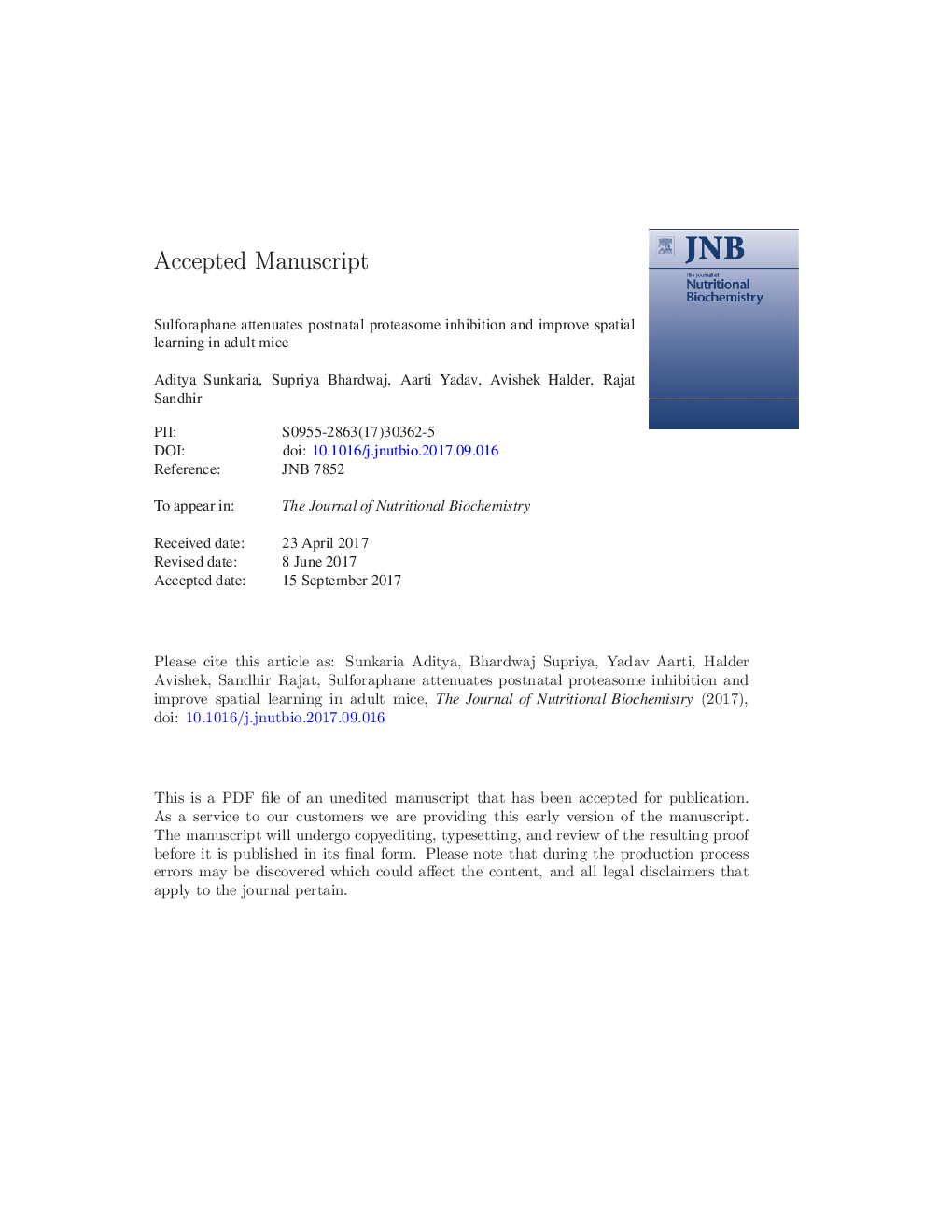| Article ID | Journal | Published Year | Pages | File Type |
|---|---|---|---|---|
| 8336458 | The Journal of Nutritional Biochemistry | 2018 | 32 Pages |
Abstract
Proteasomes are known to degrade proteins involved in various processes like metabolism, signal transduction, cell-cycle regulation, inflammation, and apoptosis. Evidence showed that protein degradation has a strong influence on developing neurons as well as synaptic plasticity. Here, we have shown that sulforaphane (SFN) could prevent the deleterious effects of postnatal proteasomal inhibition on spatial reference and working memory of adult mice. One day old Balb/c mice received intracerebroventricular injections of MG132 and SFN. Sham received an equal volume of aCSF. We observed that SFN pre-administration could attenuate MG132 mediated decrease in proteasome and calpain activities. In vitro findings revealed that SFN could induce proteasomal activity by enhancing the expression of catalytic subunit-β5. SFN pre-administration prevented the hippocampus based spatial memory impairments during adulthood, mediated by postnatal MG132 exposure. Histological examination showed deleterious effects of MG132 on pyramidal neurons and granule cell neurons in DG and CA3 sub-regions respectively. Furthermore, SFN pre-administration has shown to attenuate the effect of MG132 on proteasome subunit-β5 expression and also induce the Nrf2 nuclear translocation. In addition, SFN pre-administered mice have also shown to induce expression of pCaMKII, pCreb, and mature/pro-Bdnf, molecules which play a crucial role in spatial learning and memory consolidation. Our findings have shown that proteasomes play an important role in hippocampal synaptic plasticity during the early postnatal period and SFN pre-administration could enhance the proteasomal activity as well as improve spatial learning and memory consolidation.
Related Topics
Life Sciences
Biochemistry, Genetics and Molecular Biology
Biochemistry
Authors
Aditya Sunkaria, Supriya Bhardwaj, Aarti Yadav, Avishek Halder, Rajat Sandhir,
